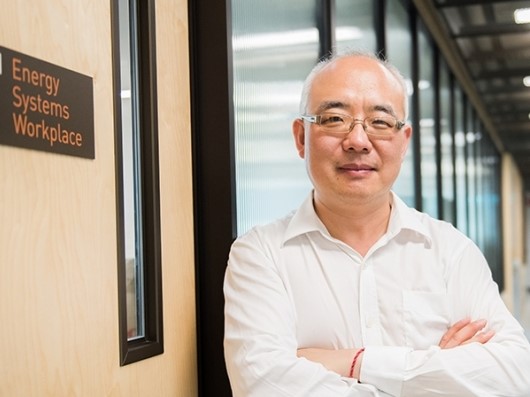Sydney-based Professor Joe Dong, Director of UNSW’s Digital Grid Futures Institute and of the ARC Research Hub for Integrated Energy Storage Solutions, has been named a finalist in this year’s coveted Global Energy Prize for what UNSW refers to as ‘outstanding and sustained contribution to the operation, control and cybersecurity of smart power grids and the electric power industry’.
Internationally recognised for his research into new and improved energy systems, Prof. Dong’s expertise encompasses smart grids; renewable-energy grid connections; load modelling and the electricity market; and the planning and stability of power systems.
Clear societal benefits
According to Professor Stephen Foster, UNSW’s Acting Dean of Engineering, his colleague’s inclusion in the Prize’s 15-strong finalist list is fitting, given the clear societal benefits of his research.
“Prof. Dong’s extensive work in academia and industry has delivered far-reaching advancements in power systems and smart electricity grids,” Prof. Foster said. “His work has progressed Australia’s transition to sustainable electric power that’s stable and affordable, which will ultimately benefit us all.”
Prof. Dong said he “was honoured” to be named a 2020 Energy Prize finalist, noting that “without electricity, modern society would not be possible”.
“I am passionate about my work, using advanced engineering and computational methods to enhance the reliability and economic efficiency of our electricity supply networks. I… thank my teams of researchers and industry partners, past and present, for their hard work towards achieving our shared vision for a stable, quality electricity supply for everyone,” Prof. Dong said.
A stellar field of nominees
This year’s winner in the ‘conventional energy’ category, in which Prof. Dong was nominated, was Italy’s Carlo Rubbia, also the recipient of the 2018 Nobel Prize for Physics, for his promotion of sustainable energy use in the field of nuclear waste and natural gas pyrolysis.
In 2018, UNSW Scientia Prof. Martin Green was the first Australian to win the Global Energy Prize. Green netted the prestigious award for his work transforming the efficiency and costs of solar photovoltaics – a job he did so effectively that solar is now the lowest-cost option for bulk electricity supply.
What is the Global Energy Prize?
Founded in 2002, the Global Energy Prize is one of the world’s most prestigious awards. It was named one of the world’s 99 major science awards by the IREG List of International Academic Awards, with an impressive ‘reputation score’ of 0.48 – compared with a 1.0 for a Nobel Prize.
Awarded annually to outstanding achievers in energy research and technology who are ‘helping address the world’s various and pressing energy challenges’, state the organisers. Honorees are awarded the Global Energy Prize along with prize money of RUB 39 million.
This year’s Energy Prize competition attracted 78 nominations from 20 countries.
Source: UNSW Engineering professor shortlisted for prestigious Global Energy Prize
https://newsroom.unsw.edu.au/news/general/unsw-engineering-professor-shortlisted-prestigious-global-energy-prize I UNSW News

